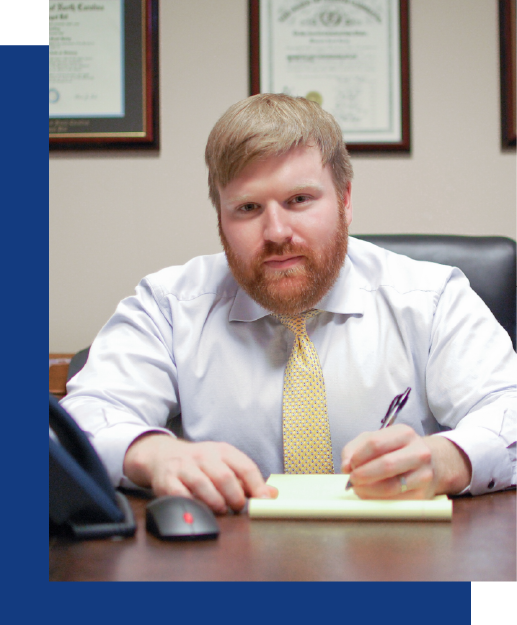Edwards Kirby Earns N.C. Supreme Court Win Aiding Medical Malpractice Victims’ Rights
Apr 27, 2020
Edwards Kirby Attorneys John Edwards, David Kirby, and Mary Kathryn Kurth recently secured a favorable ruling from the North Carolina Supreme Court that may have a significant impact on removing barriers to justice for plaintiffs who file medical malpractice lawsuits.
Read the N.C. Supreme Court Opinion here.
N.C.R. Civil P. 9(j)
The case – Preston v. Movahed – concerned North Carolina’s law requiring medical malpractice claims to contain an assertion that medical care and medical records have been reviewed by a qualified professional who is willing to testify that the care provided fell below the standard of care before any claim is filed.
The rule, designed to prevent frivolous medical malpractice litigation, often serves as a mechanism that benefits defendants by allowing them to avoid or dismiss claims on technical grounds. As a product of tort reform initiatives, it is one of many problematic issues that can unfairly tip the scales in favor of defendants.
About the Case
The case handled by Edwards Kirby was a wrongful death medical malpractice action which alleged the Defendant, a nuclear cardiologist, failed to accurately interpret diagnostic tests for a high-risk patient who presented to the ER with acute chest pain, perform a full assessment, and recommend a cardiology consult prior to discharging the patient, who tragically died from a heart attack 10 days after his ER visit.
Although the medical expert who reviewed the records and was willing to testify in regard to the defendant’s failure to meet the standard of care when as it applied to a cardiologist interpreting a treadmill stress test, he was not a nuclear cardiologist, and stated during deposition that he had initially been unwilling to testify against the defendant because he was not qualified to criticize the defendant’s interpretation of the nuclear images from the test.
Ultimately, the state Supreme Court reversed the lower courts’ rulings, which previously granted the Defendant’s motion to dismiss on the basis that the Plaintiff’s expert witness was unwilling to testify as required by N.C.R. Civil. P. 9(j).
NC Supreme Court Reverses Lower Court Decision
In its opinion, the Supreme Court of North Carolina ruled:
- The trial court and the Court of Appeals failed to view evidence regarding the expert witness’ willingness to testify under Rule 9(j) in a manner most favorable to the Plaintiff;
- The Court of Appeals, in its de novo review, erred by deferring entirely to the findings of the trial court; and
- The complaint should not be dismissed under Rule 9(j) because the factual record indicated the expert witness was willing to testify at the time the complaint was filed that medical care provided by the Defendant breached the standard of care.
The Court ruled that Rule 9(j) requires evidence to be taken “in the light most favorable to the plaintiff,” and that its enactment by the legislature was not meant for “the trial court to engage in credibility determinations and weigh competent evidence at this preliminary stage of the proceedings.”
“In sum, we conclude that the trial court and the Court of Appeals erred in failing to view the factual record in the light most favorable to plaintiff. The trial court’s findings that Dr. Toporoff was not willing to testify at the time of the filing of the Second Complaint are not supported by the evidence. The affidavits and Dr. Toporoff’s deposition testimony demonstrate that after receiving new information in Dr. Doctor’s answer, Dr. Toporoff was willing to testify at the time of the filing of the Second Complaint that defendant breached the standard of care. Further, it was reasonable for the plaintiff to conclude that Dr. Toporoff’s clinical practice as a cardiologist likely qualified him under Rule 702(b) to express expert opinions concerning Mr. Preston’s treadmill test. This complaint should not be dismissed on Rule 9(j) grounds. We reverse the Court of Appeals and remand for further proceedings.”
By laying out the rules for determining whether a plaintiff has complied with Rule 9(j), the Court provides significant clarification that may help remove substantial roadblocks for plaintiffs who file medical malpractice claims in North Carolina moving forward.
Related Posts

We’re Here to Help
Call 919-780-5400 or fill out our online form to request a free consultation. You won’t pay unless we win!